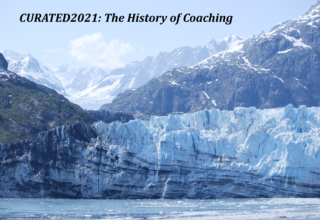
The question remains as to how coaching will change as it comes into contact with non-Western cultures, a new generation, and issues related to social justice (rather than organizational optimization). In addition to the many contributions coaching has already made, its developmental path has also yielded some challenges which must be addressed in responding to the changing environments in which it is practiced, such as:
- a lack of clear and common definitions, standards and measures;
- ongoing rivalries between associations and among schools and approaches;
- competition among types of coaches, between psychologists and others;
- fascination with external success and a propensity for fads;
- favoring of the individual/personal versus the collective/relational;
- lingering biases for behaviorism and extroverted goal orientation.
Some of our sources even went so far as to wonder if the choice at the time to call this work “coaching” was the right one. For example, Whitmore mused whether, in hindsight, it would have been better to invent a whole new word instead of bringing forward ‘coaching’ from the sports world. I share Gallwey’s hope (ibid.) that since “coaching” is a borrowed word, it will continually be redefined and, in doing so, it will continue to morph to reflect the times. In the years ahead, we may even discover that coaching is not even the right word for much of what we do. For now, we are perhaps best served by defining a frame of reference for assessing its history and its progress and by refining its definitions, its measures and its uses. As the HBR report concludes, coaching has evolved in terms of its applications in organizations and continues to add value; the goal now is to determine just where it needs to head next in addressing its challenges and in fulfilling even more of its potential.
Bill Bergquist (2009a) raises some important dichotomies as a frame for the two characters in his first article. In reflecting on them, I offer the following as four dynamic tensions (rather than as zero-sum polarities) which coaching brings forward from its past as a resource for shaping its future:
- the value of neutrality in working with people’s agendas amid the urgency for normative engagement around critical issues;
- the need to foster healthy human relationships and individual development as well as address the systemic and cultural forces which shape them (and are shaped by them);
- the drive to grow others and ourselves as full human beings while addressing the realities and demands of contemporary life;
- the need to relinquish some of the allure and attachments to coaching as a fad in order to build a stronger foundation for coaching as an integral part of our personal, organizational, institutional and cultural lives.
















